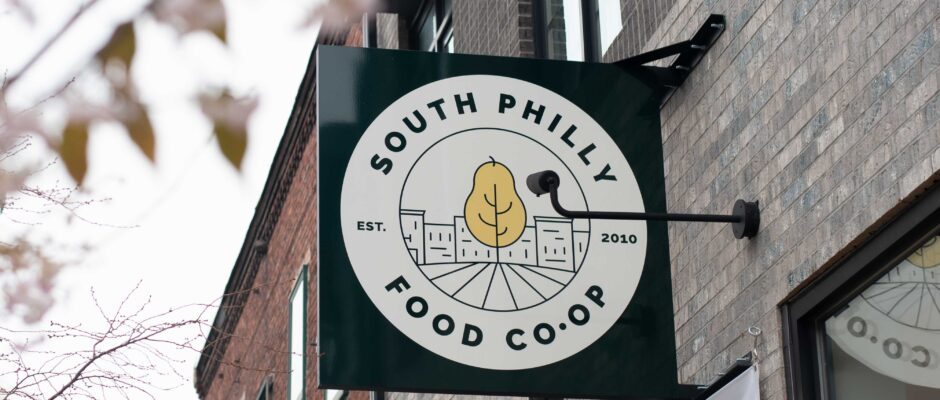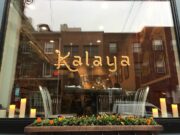Co-ops have been part of Philadelphia’s fabric for decades, but the city’s newest one, South Philly Food Co-op (SPFC), made its own history.
“We’re the only co-op [in the country] that opened during the pandemic,” says SPFC general manager Lori Burge.
Originally slated to open its doors to shoppers in spring 2020, the store (located just south of the bustling East Passyunk dining and retail corridor) had to pause crucial construction when Governor Wolf’s shutdown orders came in mid-March. Fortunately, its supporters were used to taking a long view.
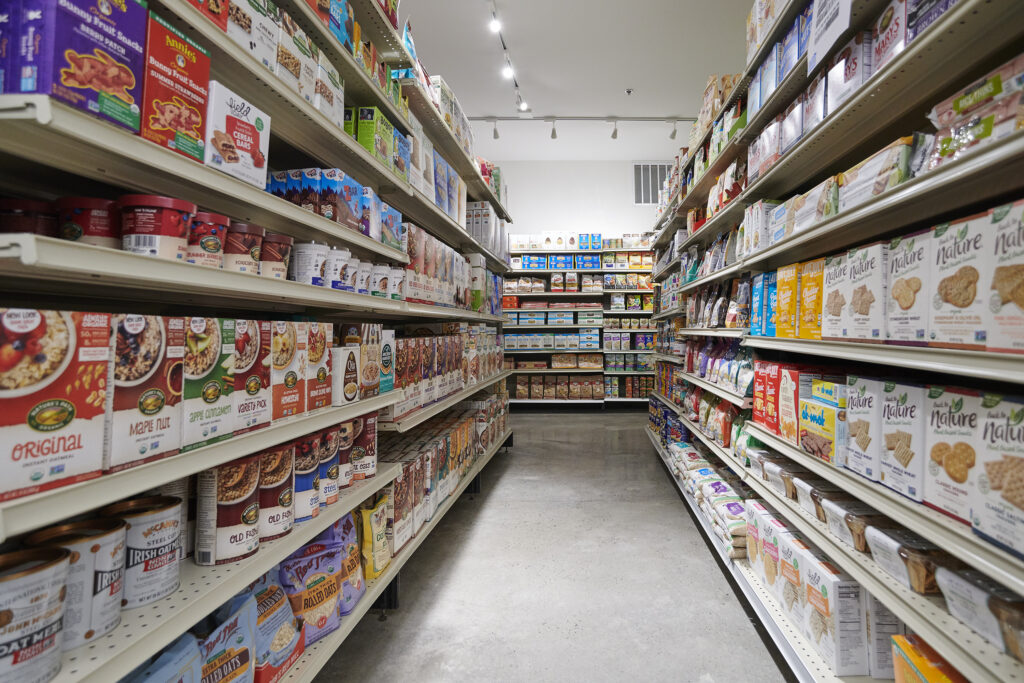
The first cooperatively owned grocery in South Philadelphia, SPFC was founded way back in 2010, the year the group held its first organizing meeting. Burge, who joined the team in 2019, knows the process firsthand. She’s been working in the co-op sector for 22 years, starting with the People’s Food Co-op in Portland, Oregon, and then moving on to launch and manage a startup co-op in New Orleans in 2011. She landed in Philadelphia several years ago, and was working as a co-op consultant before joining SPFC as its first paid staffer.
Burge was always inspired by the difference a co-op can make, she says, and wanted to “create a practical alternative to a structure that doesn’t serve our communities.”
We wanted to hold true to our commitment to open in our community in spring 2020.Lori Burge, SPFC
Getting SPFC off the ground was a long road. Co-op organizers needed community investment as well as financial investment to develop membership rolls, and to fund practical needs such as refrigeration and a long-term lease.
The pandemic forced the group to pause staffing interviews, halt construction, and pay to keep equipment in storage. They made it through thanks to federal SBA and PPP funding, along with grants and community fundraising, which helped them prepare for unexpected needs such as distanced, plexiglass-shielded registers and extra sanitation.
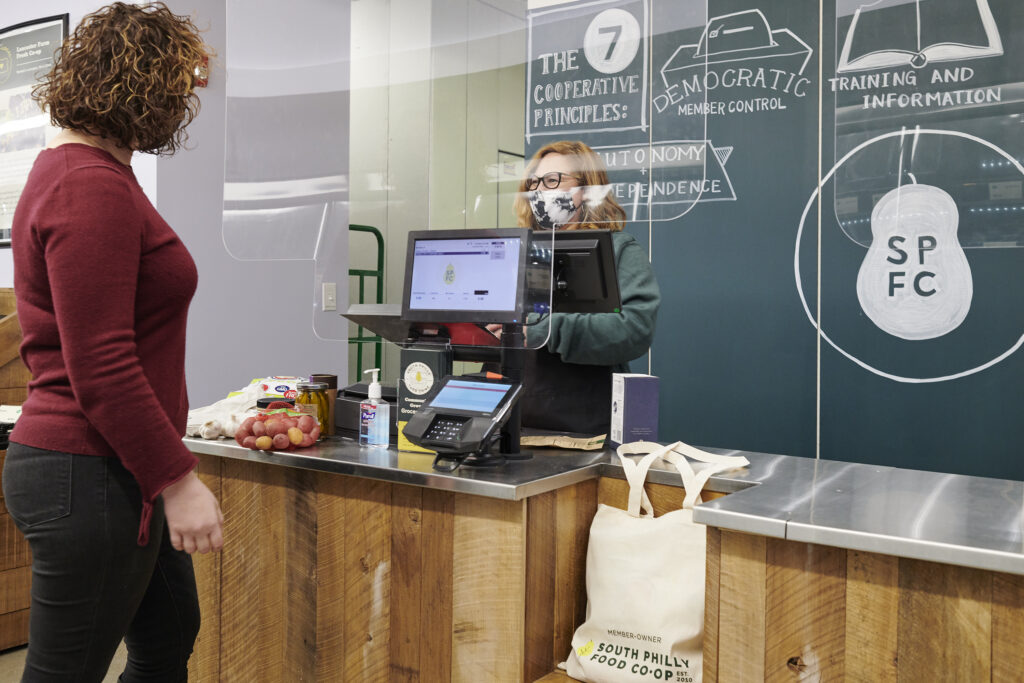
At the same time, the need for safe access to healthy food in the community was only growing more urgent.
“Shopping in an overcrowded grocery store was a scary thing,” recalls Burge. “We wanted to hold true to our commitment to open in our community in spring 2020.”
So SPFC pivoted to running an online store. Instead of a daily brick-and-mortar operation, they connected to customers via the bike-powered Bloc Delivery, and offered contactless pick-up twice a month at the nearby Bok Building, a former school that’s been repurposed as a hub of local small businesses. They offered a produce CSA in partnership with Lancaster Farm Fresh Co-op, while the venerable Weavers Way Co-op (a northwest Philly institution) helped supply non-perishables.
Outside of Burge, all this work was volunteer-driven, and community interest remained strong despite the drastically altered operations. The co-op’s storefront officially opened on December 23, 2020, and more than 150 new members joined that month. As of late February, the total number of SPFC members stood at 1,545.
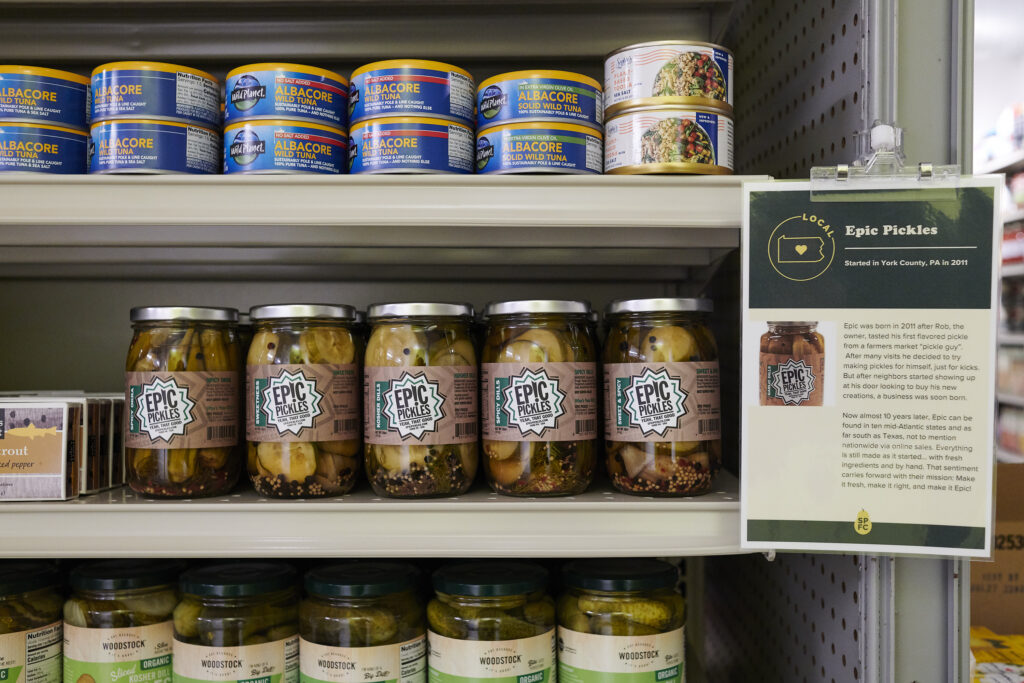
“We’ve been met with a lot of love in the community,” says Burge. SFPC now has 17 staffers, most of whom are full-time with benefits, and is open seven days a week.
“The co-op concept in Philly is deeply rooted as part of our city’s history,” she adds, pointing to stores like Weavers Way and Mariposa, which date back to the 1970s, the newer Kensington Community Food Co-op, and the Philadelphia Area Cooperative Alliance.
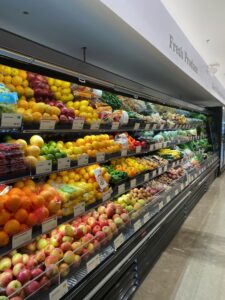
Many South Philly customers are familiar with the model, but there’s still educating to be done. Folks who understand the concept of cooperative ownership often don’t realize that the store is open to the public as well as its member-owners, or don’t realize that members do not have to work in the co-op. Then there are people who have never heard of a co-op before.
“That’s the fun work,” says Burge of filling them in on the “really deep systemic change” a cooperative model brings.
SPFC currently runs a “roundup at the register” program benefiting a different charity each month, including organizations focused on food access, sustainability, and social justice. Like all co-ops, they share the Seven Cooperative Principles, but Burge says SPFC’s additional commitment to “use food as a force for good” stands out.
“We don’t want money to be a barrier,” she explains. Community members who can’t afford the $300 equity investment up front aren’t turned away: They can pay on a flexible installment plan, or become members for as little as $5, and apply to the co-op’s Community Equity Fund to support the rest. SPFC will soon be equipped to accept SNAP benefits.
“It was such an interesting way to get going,” says Burge of their pandemic year launch. “[Our success] speaks to our resilience and the commitment our community has to make this happen.”
ALAINA JOHNS is a Philadelphia-based freelance writer and the Editor-in-Chief of BroadStreetReview.com, Philly’s hub for arts, culture and commentary.
Lead image: Sydney Seifert-Gram, Butterfish Studio
